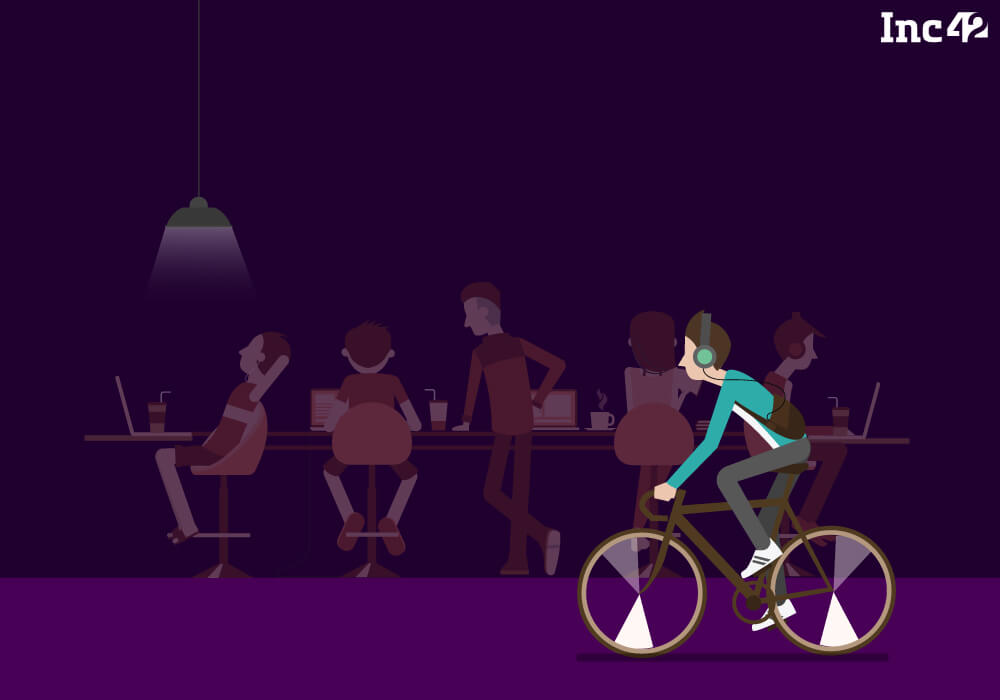I’ve been thinking about the term “startup junkie” and I can’t quite figure it out. “Junkie,” indicates some kind of addiction but, unlike heroin or meth, “startups” aren’t a clearly defined drug that you buy on the corner. In fact, if you really think about it, startups aren’t really a definable thing at all but more like a messy, unpredictable process. Are these people really addicted to uncertain processes and outcomes, or is it something else? I’m willing to bet that the vast majority of people who call themselves startup junkies are actually addicted to something other than the difficult task of starting and growing a profitable business. Here are a few thoughts on what they’re really smoking.
Titles: In what other field do people actually believe you’re a CEO just because you printed business cards that say “stealth mode CEO?” There are definitely some “title junkies” out there.
Conferences: I’m not sure when conferences transformed from being excruciatingly boring trade shows into being giant social party events that people attend for fun, but there’s no question there are a whole bunch of conference junkies.
Bootstrapping: Pretty sure nobody is addicted being poor and eating ramen so this should probably be taken off the list.
Freewheeling culture: I suspect some of these people are addicted to the freewheeling culture of startups. This is a legitimate thing to be drawn to, but it doesn’t really make you a startup junkie, just somebody who has a problem following rules.
Meaningful work: I’ve written before about the idea that many people become entrepreneurs as a way of seeking out meaningful work, but so many of the self-proclaimed startup junkies launch things such as underwear mailing companies that can’t possibly be considered meaningful. Meaningful work junkies? Maybe.
The lottery dream: This is probably one of the biggest sub-categories of startup junkies; people who are just trying to hit the big exit. They aren’t really addicted to the process of starting a company, but rather they’re addicted to the dream of hitting an Instagram-type jackpot. Instead of startup junkies, these people might just want to call themselves lottery players.
The idea of entrepreneurship: This past Valentine’s Day I wrote a post about love and how we’ve loaded the word with all kinds of mystical meaning. In many ways, we’ve done the same thing to the word “entrepreneur.” Instead of just being a person who starts a new business, we have this idea that entrepreneurs are some kind of hero figure who will save the economy and change the world all at the same time. I suspect many people are just addicted to the idea of entrepreneurship as opposed to the actual process.
Self image: Closely related to being addicted to the idea of entrepreneurship, some people are just desperate to imagine themselves as some kind of swashbuckling pirate as opposed to the regular person that they probably are in real life. Best to call this group, “delusional self esteem junkies.”
On my column last Tuesday someone who goes by the name KenG left the following comment that I thought was very insightful. KenG wrote:
Entrepreneur’ is not an occupation, it’s something you have to do when you want to solve a problem and there’s no existing vehicle (like a company) for you to address the problem. You get forced into being an entrepreneur because you want to (solve) a problem, because it requires that you start a company, build a team, raise money, and do the things that need to be done to solve your problem. Otherwise you are just looking for a vehicle that will generate wealth and/or notoriety for you.
As I thought about KenG’s comment, it occurred to me that the purest form of a startup junkie is someone who, for lack of a better word, is addicted to solving new problems on a scale that requires the leverage of a company. This type of startup junkie finds himself taking on new challenges every few years because, a) he has already solved the previous problem, and b) he sees a new problem to solve. I wonder how many self proclaimed startup junkies are actually addicted to this process as opposed to some of the other tangential elements of the startup world. I suspect if we boil it down, the number is very, very small.
[Editor’s Note: This is a republication of the article originally featured on PandoDaily. Illustration by Hallie Bateman]


























